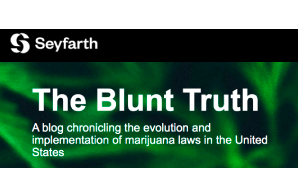By on
Two years ago, we detailed here legislative and other efforts in Texas to expand legal uses of cannabis. The bill related to expanding Texas’ compassionate use registry for medical marijuana (still one of the narrowest in the nation) was successful; broader efforts at decriminalization or legalization were not.
2021 brings another legislative session (In Texas, the state legislature only meets in odd-numbered years and for a period of less than 5 months), and further prospects for opening up opportunities for the use of cannabis in the 2nd largest state in the country.
Over a dozen bills were “pre-filed” before the session began.
Here are some of the featured bills:
- SB 140 (Gutierrez)– The most comprehensive of the proposals, this bill would introduce a full licensure system for growers, retailers, transporters and testing facilities. It provides for legalization of possession and use of cannabis on private property by persons over 21, full medical use on a doctor’s order (without regard to restrictions based on condition), and taxes cannabis sales (with revenue from the 10% tax devoted to statewide school funding).
- HB 43 (Dominguez)– This bill builds and expands on progress made in the last legislative session to expand the compassionate use registry, opening up the registry to persons with any condition for which a physician certifies that cannabis is medically necessary. The bill also eliminates limits on THC for medical cannabis used by registry participants.
- Four different lawmakers (3 in the House and 1 in the Senate) are proposing a constitutional amendment for either medical use or full legalization, which would require a statewide referendum in November 2021.
While conservative lawmakers have historically been unfriendly to cannabis legislation in Texas (Lt. Gov. Dan Patrick, who controls the state’s Senate, is particularly ill-disposed), polling for cannabis has never been better. In early March, a statewide poll found 60% of Texans would support legalization for non-medical purposes, with another 28% favoring medical use only. Support has risen almost twenty points since a similar poll 11 years ago. Somewhat surprisingly, support was highest among Texans 30-44 years old, rather than younger sample members as may have been expected.
While prospects for passage of broader bills remains uncertain, there has likely never been greater momentum behind legalization and decriminalization efforts. Boosters of legalization were hoping that shortfalls in tax revenue caused by COVID-19 and recent severe weather events would provide lawmakers with an additional incentive to open up new avenues of taxation; however, budget estimates were higher than the more dire forecasts available.


















